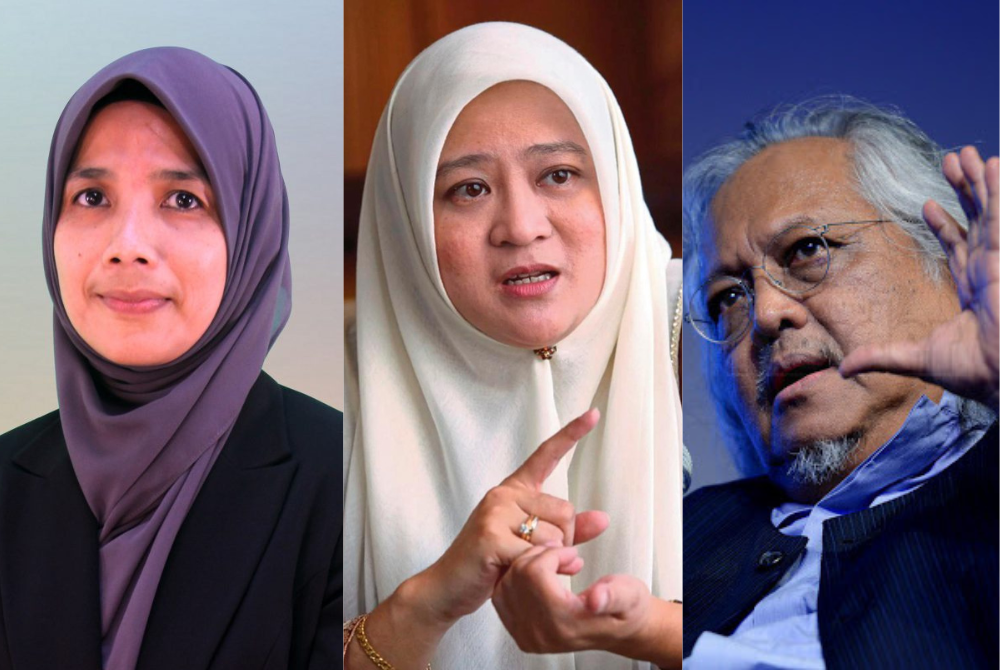Employee screening important, to weed out toxic behaviour, say experts

SHAH ALAM - Although some jobs and professional positions necessitate a certain level of assertiveness, there is a fine line between assertiveness and abuse.
This is one of the reasons that screening is used in employment recruiting, training, and promotion.
Universiti Sains Malaysia (USM) Psychologist and criminologist Dr Geshina Ayu Mat Saat said that regardless of rank, status, and position, everyone should be treated with respect.
“A person’s intelligence, ethnicity, family background, skin colour, gender, physical differences, religion, and other sociodemography should not be used as a reason for bad or below-par treatment.
“Organisations work as a unit in which several teams collaborate and move towards specific goals and the organisation’s vision,” Geshina said.
She stated there should be no point in communication, cooperation and collaboration that violence should be considered an acceptable work ethos.
“Unfortunately, despite policies in place and idealised conditions, toxic people do exist in organisations, Geshina said.
Geshina explained that toxic persons might be brought into the workplace in one of two ways. The first is through weaknesses in recruiting screening. The chosen individual already has a toxic personality but has managed to conceal it, or the screening process does not include screening out toxicity.
The second method is that poisonous attitudes and actions emerge over time, either as a result of the current work culture and climate or as a result of personal experiences following acceptance into the business.
“In work environments, communication should be professional, corresponding to professional relationships.
“Comradery is encouraged in most organisations but even then, communication and relationships should not cross over to abuse, manipulation, or abuse of power.
“Over time, this creates negative or toxic work environments, even when only one or two employees are abusive,” Geshina said.
She elaborated that violence only begets violence and the vicious cycle of abuse on the job continues over time.
As a result, she said, job burnout and turnover were high, and the development of psychological distress and physiological illness were more likely to occur, leading to the organisation and everyone working there losing out.
“In occupations that require some elements of aggression like the armed forces; dominance, abuse and violence are not the only ways to get the job done, train employees and future leaders, and engage with stakeholders.
“Assertive traits can be used instead. The use of empathy and constructive communication for example provides benefits in the short term and long term,” Geshina said.
She mentioned that some toxic employees react to perceived wrongdoing by other employees, regardless of whether the action is thought to be against established work culture or inappropriate behavior/conduct of a person in that position/organisation. This is primarily an emotional reaction that is influenced by the toxic employee’s personality.
Meanwhile, Universiti Sains Islam Malaysia Faculty of Leadership and Management Counselling Program senior lecturer Dr Nurhafizah Mohd Sukor said that everyone deserves to be treated respectfully regardless of their race, age, position, and titles assigned to them.
“It is equally important to show good manners and approach people with warm and friendly demeanor.
“Whatever their titles and work position, or even educational background, everyone should be talked to with polite and courteous manners in line with our asian culture,” Nurhafizah said.
She continued that most of the religious teachings in Malaysia did not condone ruthlessness and being inconsiderate in our daily interactions.
“Based on the observation of the recent cases, I am of the opinion that a sense of empathy and understanding of diverse characters and background is one of the skills that is vital in our daily social interactions.
“To be treated fairly and respectfully, we should pay attention to what others are dealing with and treat them in ways that we want to be treated,” Geshina said.
She mentioned that most have encountered a lack of effective social interaction, for example a lack of eye contact, understanding of facial expressions, use of emojis rather than expression of words in a complete sentence yielding to very poorly developed social demeanor.
“In this case, it can be observed that some may started to shout and look down at others.
“Nevertheless, this is not an effective way to communicate with others to get their compliance and services,” Nurhafizah said.
Adding to Nurhafizah’s point, Institut Kajian Etnik (KITA), Political Sociology, Professor Datuk Dr Shamsul Amri Baharuddin said common communication etiquette calls for everyone to be treated respectfully irrespective of ranks.
“A few higher officers are bullies and there have been instances where the lower ranking officers are bullied by the boss.
“How many of these cases are taking place right now, the presence of social media may have increased the numbers of such cases being recorded,” Shamsul said.
He stated that in terms of etiquette everyone should be treated respectfully, but in most cases both bosses and lower officers are rude to each other sometimes.











